Your search “Keep%20the%20death%20penalty%abolished%20in%20the%20ePhilippfines%20e%20e%20e%20e%20e%20e%20e%20e%20e%20e/page/www.humanrights.asia/resources/report/2011/AHRC-sur-008-2011/act_download/file ”
Document(s)
STRENGTHENING THE DEFENCE IN DEATH PENALTY CASES IN THE PEOPLE´S REPUBLIC OF CHINA: Empirical Research into the Role of Defence Councils in Criminal Cases Eligible for the Death Penalty
By Hans Jörg Albrecht / Max Planck Institute for Foreign and International Criminal Law, on 1 January 2006
2006
Article
China
More details See the document
This project examines the role of defence councils in Chinese criminal proceedings that can end up with the imposition of the death penalty. It aims to review the problems defence lawyers face in such proceedings, the defence strategies they apply and to examine whether the assignment of a defence lawyer makes a difference in the outcome of a criminal trial. Moreover, the project explores what can and should be done to empower defence councils to effectively represent suspects and accused in death penalty eligible cases.The objective of the study is to shed light on the problems experienced by criminal defence councils when defending capital crime cases and to generate information on how death penalty cases are processed through the Chinese system of justice as well as the determinants of the outcomes death penalty eligible criminal cases.
- Document type Article
- Countries list China
- Themes list Legal Representation,
Document(s)
Convicting the Innocent
By Samuel R. Gross / Annual Review of Law and Social Science, on 1 January 2008
2008
Article
United States
More details See the document
Almost everything we know about false convictions is based on exonerations in rape and murder cases, which together account for only 2% of felony convictions. Within that important but limited sphere we have learned a lot in the past 30 years; outside it, our ignorance is nearly complete. This review describes what we now know about convicting the innocent: estimates of the rate of false convictions among death sentences; common causes of false conviction for rape or murder; demographic and procedural predictors of such errors. It also explores some of the types of false convictions that almost never come to light—innocent defendants who plead guilty rather than go to trial, who receive comparatively light sentences, who are convicted of crimes that did not occur (as opposed to crimes committed by other people), who are sentenced in juvenile court—in fact, almost all innocent defendants who are convicted of any crimes other than rape or murder. Judging from what we can piece together, the vast majority of false convictions fall in these categories. They are commonplace events, inconspicuous mistakes in ordinary criminal investigations that never get anything close to the level of attention that sometimes leads to exoneration.
- Document type Article
- Countries list United States
- Themes list Innocence,
Document(s)
Predictors of Miscarriages of Justice in Capital Cases
By Talia Roitberg Harmon / Justice Quarterly, on 1 January 2001
2001
Article
United States
More details See the document
Prior research on wrongful convictions in capital cases focused primarily on qualitative methods designed to provide in-depth descriptive analyses of these cases. In contrast, this study is a quantitative comparison between 76 documented cases from 1970 to 1998, in which prisoners were released from death row because of “doubts about their guilt,” and a matched group of inmates who were executed. Through the use of a logistic regression model, significant predictors of cases that result in a release from death row as opposed to an execution, are identified. The final section of this study focuses on policy implications that may decrease the risk of error in capital cases. Additional lines of research are suggested in an effort to increase understanding of miscarriages of justice in such cases.
- Document type Article
- Countries list United States
- Themes list Innocence,
Document(s)
Religion and the Death Penalty: A Call for Reckoning
By John D. Carlson / Erik C. Owens / Wm. B. Eerdmans Publishing Company / Eric P. Elshtain / J. Budziszewski / E. J. Dionne / Avery Cardinal Dulles / Stanley Hauerwas / Frank Keating / Gilbert Meilaender / David Novak, on 1 January 2004
2004
Book
More details See the document
This important book is sure to foster informed public discussion about the death penalty by deepening readers’ understanding of how religious beliefs and perspectives shape this contentious issue. Featuring a fair, balanced appraisal of its topic, Religion and the Death Penalty brings thoughtful religious reflection to bear on current challenges facing the capital justice system.
- Document type Book
- Themes list Religion ,
Document(s)
International Law Issues in Death Penalty Defense
By Richard J. Wilson / Hofstra Law Review, on 1 January 2003
2003
Article
United States
More details See the document
This short article will explore some additional issues regarding the relationship between international law and the death penalty. First, it will discuss some additional aspects of the representation of foreign nationals in capital cases. Second, it will discuss additional instances in which defense counsel can make international law arguments, regardless of the client’s nationality. Third, because international law issues are new to most lawyers in the United States, even those who are seasoned in capital litigation, it will suggest some alternative ways in which international law arguments can be made. The conclusion will put theUnited States experience with the death penalty into the broader context of world practice on the death penalty.
- Document type Article
- Countries list United States
- Themes list Legal Representation,
Document(s)
Congressional Power to Require DNA Testing
By Larry Yackle / Hofstra Law Review, on 1 January 2001
2001
Article
United States
More details See the document
Many states fail to conduct, or even to permit, DNA testing of biological materials in circumstances in which the results might exonerate convicts under sentence of death. Senator Patrick Leahy thinks that Congress should enact a statute requiring states to provide for testing when it promises to reveal the truth. Leahy’s idea is sensible as a matter of policy. I mean in this Article to argue that it is also constitutionally feasible.
- Document type Article
- Countries list United States
- Themes list Networks,
Document(s)
Officials’ Estimates of the Incidence of ‘Actual Innocence’ Convictions
By Angie Kiger / Brad Smith / Marvin Zalman / Justice Quarterly, on 1 January 2008
2008
Article
United States
More details See the document
Evidence indicates that the conviction and imprisonment of factually innocent persons occur with some regularity. Most research focuses on causes, but the incidence of wrongful convictions is an important scientific and policy issue, especially as no official body gathers data on miscarriages of justice. Two methods are available for discovering the incidence of wrongful conviction: (1) enumerating specific cases and (2) having criminal justice experts estimate its incidence. Counts or catalogues of wrongful conviction necessarily undercount its incidence and are subject to accuracy challenges. We surveyed Michigan criminal justice officials, replicating a recent Ohio survey, to obtain an expert estimate of the incidence of wrongful conviction. All groups combined estimated that wrongful convictions occurred at a rate of less than 1/2 percent in their own jurisdiction and at a rate of 1-3 percent in the United States. Defense lawyers estimate higher rates of wrongful conviction than judges, who estimate higher rates than police officials and prosecutors. These differences may be explained by professional socialization. An overall wrongful conviction estimate of 1/2 percent extrapolates to about 5,000 wrongful felony convictions and the imprisonment of more than 2,000 innocent persons in the United States every year.
- Document type Article
- Countries list United States
- Themes list Innocence,
Document(s)
America’s Experiment With Capital Punishment: Reflections on the Past, Present, and Future of the Ultimate Penal Sanction
By Carol S. Steiker / James R. Acker / Jordan M. Steiker / Richard J. Wilson / Robert Blecker / Stephen B. Bright / Charles S. Lanier / Robert M. Bohm / Carolina Academic Press / Ernest van den Haag / Ruth D. Peterson / William C. Bailey / Jon Sorensen / James Marquart / Victor L., on 8 September 2020
2020
Book
United States
More details See the document
The second edition of America’s Experiment with Capital Punishment is an updated and expanded version of the comprehensive first edition. Chapters, authored by the country’s leading legal and social science scholars, have been revised to include a host of important developments since the 1998 edition. Thus, new evidence and information is presented concerning racial disparities in the administration of the death penalty, wrongful convictions, deterrence, the prediction of future dangerousness, jury decision-making, public opinion about the death penalty, the effects of the capital punishment process on murder victims’ and offenders’ relatives, death row incarceration, the costs of capital punishment, execution methods, and many other issues.
- Document type Book
- Countries list United States
Document(s)
Racial Disparity and Death Sentences in Ohio
By Marian R. Williams / Jefferson E. Holocomb / Journal of Criminal Justice, on 1 January 2001
2001
Article
United States
More details See the document
The use of the death penalty has resulted in a number of studies attempting to determine if its application is consistent with the guidelines established by the United States Supreme Court. In particular, many studies have assessed whether there are racial disparities in the imposition of death sentences. This study examined the imposition of death sentences in Ohio, a state largely ignored by previous research and that, until 1999, had not executed an inmate since 1963. Drawing from previous studies that have examined the issue in other states, this study assessed the likelihood that a particular homicide would result in a death sentence, controlling for race of defendant and victim and other relevant factors. Results indicated both legal and extralegal factors (including race of victim) were significant predictors of a death sentence, supporting many previous studies that concluded that race plays a role in the imposition of the death penalty.
- Document type Article
- Countries list United States
- Themes list Networks,
Document(s)
Litigating in the Shadow of Death
By Lawrence C. Marshall / University of Pittsburgh Law Review, on 1 January 2006
2006
Article
United States
More details See the document
One gets the strong sense that Professor White believed that the key to changing or abolishing the death penalty in the United States was to educate policymakers and the public about its practical operation. This, of course, was Justice Thurgood Marshall’s hypothesis in Furman v. Georgia: that the widespread support that the death penalty enjoys in the country is a product of mass ignorance about how it is applied. Professor White did not simply posit the theory, he dedicated much of his life to the mission of educating the public about the inequities of the American death penalty. This final book does that in an extraordinarily effective way by combing together studies of illustrative cases, analysis of the lawyers’ roles and dilemmas, and cogent explanations of the state of the law.
- Document type Article
- Countries list United States
- Themes list Networks,
Document(s)
The death penalty in China today: Kill fewer, kill cautiously
By Susan Trevaskes / Asian Survey, on 1 January 2008
2008
Article
China
More details See the document
While the PRC death penalty debate has been an ongoing and highly contentious issue in the international human rights arena, death sentence policy and practice in China has remained relatively static since the early 1980s. Events in late 2006 and early 2007 have now dramatically changed the landscape of capital punishment in China. This paper analyses the recent debate on the death penalty in terms of the shifting power relationships in China today. The Supreme People’s Court wants to strictly limit the death penalty to only the ‘most heinous’ criminals while the politburo on the other hand, wants to maintain the two-decade old ‘strike hard’ policy which encourages severe punishment to be meted out to a wider range of serious criminals.
- Document type Article
- Countries list China
- Themes list Public debate,
Document(s)
Deciding Death
By Corinna Barrett Lain / Duke Law Journal, on 1 January 2007
2007
Article
United States
More details See the document
When the Supreme Court is deciding death, how much does law matter? Scholars long have lamented the majoritarian nature of the Court’s Eighth Amendment “evolving standards of decency” doctrine, but their criticism misses the mark. Majoritarian doctrine does not drive the Court’s decisions in this area; majoritarian forces elsewhere do. To make my point, I first examine three sets of “evolving standards” death penalty decisions in which the Court implicitly or explicitly reversed itself, attacking the legal justification for the Court’s change of position and offering an extralegal explanation for why those cases came out the way they did. I then use political science models of Supreme Court decisionmaking to explain how broader social and political forces push the Court toward majoritarian death penalty rulings for reasons wholly independent of majoritarian death penalty doctrine. Finally, I bring the analysis full [*pg 2] circle, showing how broader sociopolitical forces even led to the development of the “evolving standards” doctrine. In the realm of death penalty decisionmaking, problematic doctrine is not to blame for majoritarian influences; rather, majoritarian influences are to blame for problematic doctrine. The real obstacle to countermajoritarian decisionmaking is not doctrine, but the inherently majoritarian tendencies of the Supreme Court itself.
- Document type Article
- Countries list United States
- Themes list Networks,
Document(s)
A New Profession for an Old Need: Why a Mitigation Specialist Must be Included on the Capital Defense Team
By Pamela Blume Leonard / Hofstra Law Review, on 1 January 2003
2003
Article
United States
More details See the document
The fundamental task of the mitigation specialist is to conduct a comprehensive social history of the defendant and identify all relevant mitigation issues. The 2003 revised edition of the American Bar Association Guidelines for the Appointment and Performance of Defense Counsel in Death Penalty Cases recognizes the mitigation specialist as an “indispensable member of the defense team throughout all capital proceedings.” What are the particular responsibilities and contributions of a mitigation specialist and what makes them so essential to the capital defense team as to warrant this long overdue recognition by the ABA Guidelines?
- Document type Article
- Countries list United States
- Themes list Legal Representation,
Document(s)
The Guiding Hand of Counsel’ and the ABA Guidelines for the Appointment and Performance of Defense Counsel in Death Penalty Cases
By Robin M. Maher / Hofstra Law Review, on 1 January 2003
Article
United States
More details See the document
The ABA has long been concerned with the provision of effective counsel for all criminal defendants, especially for those facing the death penalty. In 1989, the ABA first published its Guidelines for the Appointment and Performance of Counsel in Death Penalty Cases, which detailed the kind of competent, effective legal representation that all capital defendants were entitled to receive. Earlier this year, after a two-year effort drawing upon the expertise of a broad group ofdistinguished and experienced judges, lawyers, and academics, the ABA House of Delegates overwhelmingly approved revisions to those Guidelines to update and expand upon the obligations of death penalty jurisdictions to ensure due process of law and justice. “These Guidelines are not aspirational.” They articulate a national standard of care and the minimum that should be required in the defense of capital cases.
- Document type Article
- Countries list United States
- Themes list Legal Representation,
Document(s)
Executing the Mentally Ill: When Is someone Sane Enough to Die?
By Michael Mello / Criminal Justice, on 1 January 2007
2007
Article
United States
More details See the document
Mental illness is a phenomenon that knifes across the entire corpus of our criminal justice system. From interrogations and waivers of Miranda rights, to consent to searches and seizures, to plea negotiations and the capacity to stand trial, to calculating sentences and participating in appellate and postconviction proceedings, mental illness warps the machinery of our criminal law and challenges its most cherished assumptions about free will, decisional competence, and culpability. This is so regardless of whether or not life hangs in the balance. But when the stakes are life and death, the structural distortions caused by mental illness become magnified, and the contradictions can rise to constitutional magnitude.
- Document type Article
- Countries list United States
- Themes list Mental Illness,
Document(s)
Preventing the Execution of the Innocent: Testimony Before the House Judiciary Committee.
By Peter Neufeld / Hofstra Law Review, on 1 January 2001
2001
Article
United States
More details See the document
There have been at least sixty-seven postconviction DNA exonerations in the United States. Our Innocence Project at the Benjamin N. Cardozo School of Law has either assisted or been the attorney of record in thirty-nine of those cases, including eight men who served time on death row. For all of these men, existing appellate remedies failed to catch the mistakes and correct the injustice. In one third of the exonerations, bad lawyering contributed to their convictions yet in only one case was ineffective assistance of counsel recognized by an appellate court. Mistaken eyewitness identification was a critical factor in almost 90% of the unjust convictions yet not a single trial or appellate court found the eyewitness testimony to be unreliable.
- Document type Article
- Countries list United States
- Themes list Innocence,
Document(s)
Why an Independent Appointed Authority Is Necessary to Choose Counsel for Indigent People in Capital Punishment Cases
By Ronald J. Tabak / Hofstra Law Review, on 1 January 2003
2003
Article
United States
More details See the document
The revised ABA Guidelines for the Appointment and Performance of Defense Counsel in Death Penalty Cases require that an agency “independent of the judiciary” be responsible for “ensuring that each capital defendant in the jurisdiction receives high quality legal representation.” This independent agency “and not the judiciary or elected officials should select lawyers for specific cases.” These mandates reflect two realities that have become overwhelmingly clear: (1) judges—whether initially elected, subject to retention elections, or appointed—are subject to political pressures in connection with capital punishment cases; and (2) lawyers whom judges have appointed in capital punishment cases have frequently been of far lower quality than could have been selected.
- Document type Article
- Countries list United States
- Themes list Legal Representation,
Document(s)
Errors and Ethics: Dilemmas in Death
By Penny J. White / Hofstra Law Review, on 1 January 2001
2001
Article
United States
More details See the document
In the last five years, the death penalty has become a frequent topic of discussion. While discussion of such an emotive topic is not unusual for any period in history, the tenor of the recent dialogue is unusual. For the most part, the discussion centers around the problems with capital punishment, particularly its inaccuracy and unfairness. This Article begins in Part II with a discussion of recent claims about the frequency of errors in capital cases. Part III enumerates and discusses the factors generally thought to be the cause of the errors. Part IV details new rules recently adopted in one jurisdiction in an effort to eliminate the errors. Part IV also suggests that these new rules, though worthwhile, are actually a reiteration of long-standing ethical obligations of judges and lawyers, the breach of which is responsible for many of the errors. Part V recommends additional remedies which the bench and the bar must take if there is a true commitment to providing a fair, just, and reliable system for determining who the government is entitled to kill.
- Document type Article
- Countries list United States
- Themes list Networks,
Document(s)
The Political Sociology of the Death Penalty: A Pooled Time-Series Analysis
By Jason T. Carmichael / David Jacobs / American Sociological Review, on 1 January 2002
2002
Article
United States
More details See the document
Despite the interest in the death penalty, no statistical studies have isolated the social and political forces that account for the legality of this punishment. Racial or ethnic threat theories suggest that the death penalty will more likely be legal in jurisdictions with relatively large black or Hispanic populations. Economic threat explanations suggest that this punishment will be present in unequal areas. Jurisdictions with a more conservative public or a stronger law and order Republican party should be more likely to legalize the death penalty as well. After controlling for social disorganization, region, period, and voilent crime, panel analyses suggest that minority presence and economic inequality enhance the likelihood of a legal death penalty. Conservative values and Republican strength in the legislature have equivalent effects; A supplement time-to-event analysis supports these conclusions. The results suggest that a political approach has explanatory power because threat effects expressed through politics and effects that are directly political invariable account for decisions about the legality of capital punishment.
- Document type Article
- Countries list United States
- Themes list Networks,
Document(s)
Death Penalty in Korea: From Unofficial Moratorium to Abolition?
By Kuk Cho / Asian Journal of Comparative Law, on 1 January 2008
2008
Article
Democratic People's Republic of Korea
More details See the document
This article provides an overview of the legal regime governing the death penalty and the on-going debate on the death penalty in Korea. It begins by briefly reviewing international treaties that call for the abolition of the death penalty, contrasting them with the retentionist trend in most Asian countries. It then reviews the major decisions of the Korean Supreme Court and the Korean Constitutional Court. It also discusses recent moves in the National Assembly and the National Human Rights Commission to abolish the death penalty. It suggests that the Korean death penalty debate has potentially significant implications for its retentionist Asian neighbours grappling with similar issues.
- Document type Article
- Countries list Democratic People's Republic of Korea
Document(s)
The Peculiar Forms of American Capital Punishment
By David Garland / Social Research: An International Quarterly, on 1 January 2007
2007
Article
United States
More details See the document
There are two puzzles that confront observers of American capital punishment at the start of the 21st century. One concerns the legal and administrative arrangements through which it is enacted, which strike many commentators as irrational, or at least poorly adapted to the traditional ends of criminal justice. The other concerns the persistence of capital punishment in the USA in a period when comparable nations have decisively abandoned its use. In this essay, I will address both of these two questions, beginning with the first and offering conclusions that bear upon the second.The historical struggles around issues of capital punishment, structured as they have been by the American polity with its distinctive mix of federalism, sectionalism, and democratic populism, form the necessary basis for understanding the American present and for comparing America’s current practices with those of other western nations. Any explanation of American capital punishment ought to begin by focusing attention on these structures and these struggles.
- Document type Article
- Countries list United States
- Themes list Networks,
Document(s)
Not “Waiving” But Drowning: The Anatomy of Death Row Syndrome and Volunteering for Execution
By Amy Smith / Boston University Public Interest Law Journal, on 8 September 2020
2020
Article
United States
More details See the document
Within the international community, other countries have recognized the potential for harm caused by our current system, and as a result have refused to extradite back to the United States individuals who might face the death penalty. These countries cite not only the possibility of execution as reason for refusal, but the waiting process which attends that death as a separate, independent violation of human rights. If we remain unpersuaded by the international community, the behavioral trends of those individuals awaiting execution are telling as well. Within one week in 2008, two individuals awaiting death in Texas committed suicide, reflecting the heightened suicide rates on death row, estimated at ten times greater than those in society at large and several times greater than those in a general prison population. In addition, the widely-recognized practice of “volunteering” for execution permits condemned inmates to waive their state and federally mandated rights to appeal in order to speed up the execution process, in essence “volunteering” to be executed.
- Document type Article
- Countries list United States
- Themes list Death Row Phenomenon, Extradition,
Document(s)
‘A “Most Serious Crime”? – The Death Penalty for Drug Offences and International Human Rights Law’
By Rick Lines / Amicus Journal, on 1 January 2010
2010
Article
More details See the document
An in-depth analysis of the international law ramifications of applying the death penalty for drug offences. It reviews the the ‘most serious crimes’ threshold for the lawful application of capital punishment as established in the International Covenant on Civil and Political Rights. It then explores the question of whether drug offences meet this threshold by examining the issue through the lenses of international human rights law, the domestic legislation in retentionist states, international narcotics control law, international refugee law and international criminal law. The article concludes that drug offences do not constitute ‘most serious crimes’, and that executions of people for drug offences violates international human rights law.
- Document type Article
- Themes list Drug Offences, Most Serious Crimes,
Document(s)
ICCPR Case Law on Detention, the Prohibition of Cruel Treatment and Some Issues Pertaining to the Death Row Phenomenon
By Eva Rieter / Journal of the Institute of Justice and International Studies, on 1 January 2002
2002
Article
More details See the document
This paper discusses some case law on detention issues by the Human Rights Committee (HRC) that supervises the International Covenant on Civil and Political Rights (ICCPR), as well as HRC case law on the so-called “death row phenomenon,” which involves forcing a person to live under conditions that spawn intense fear, distress, and the virtual destruction of the personality while awaiting execution.
- Document type Article
- Themes list Cruel, Inhuman and Degrading Treatment and Punishment, Death Row Phenomenon,
Document(s)
Criminological analysis on deterrent power of death penalty
By Yuanhuang Zhang / Frontiers of law in China, on 1 January 2009
2009
Article
China
zh-hantMore details See the document
Death penalty is the most effective deterrence to grave crimes, which has been the key basis for the State to retain death penalty. In fact, either in legislation or in execution, death penalty can not produce the special deterrent effect as expected. With respect to this issue, people tend to conduct normative exploration from the perspective of ordinary legal principles or the principle of human rights, which is more speculative than convincing. Correct interpretation based on the existing positive analysis and differentiation based on human nature which sifts the true from the false will not only help end the simple, repetitive and meaningless arguments regarding the basis for the existence of death penalty, but also help understand the rational nature of both the elimination and the preservation of death penalty, so as to define the basic direction towards which the State should make efforts in controlling death penalty in the context of promoting social civilization.
- Document type Article
- Countries list China
- Themes list Deterrence ,
- Available languages 犯罪学分析死刑威慑力量(注:英文名翻译)
Document(s)
Capital Punishment at the United Nations: Recent Developments
By Ilias Bantekas / Peter Hodgkinson / Criminal Law Forum, on 1 January 2000
2000
Article
More details See the document
The article discusses the difficulties and controversies surrounding the 1999 Draft Resolution on the Death Penalty to the United Nations General Assembly.
- Document type Article
- Themes list Networks,
Document(s)
The Waiver and Withdrawal of Death Penalty Appeals as “Extreme Communicative Acts”
By Avi Brisman / Western Criminology Review, on 1 January 2010
2010
Article
United States
More details See the document
This paper explores the power struggle between the State and the condemned over the timing and conditions under which an inmate is executed. It begins with a discussion of current public opinion about the death penalty and the ways in which the death penalty has been resisted. Next, it describes capital defendants who elect execution over life imprisonment and considers some of the reasons proffered for waiver and withdrawal. This paper then contemplates whether some instances of “volunteering” should be regarded as “extreme communicative acts” (Wee 2004, 2007)—nonlinguistic communicative acts that are usually associated with protest, especially in the context of a lengthy political struggle (such as hunger strikes, self-immolation, and the chopping off of one’s fingers). In so doing, this paper weighs in on the larger questions of who ultimately controls the body of the condemned and what governmental opposition to waiver and withdrawal may reveal about the motives and rationale for the death penalty. This paper also furthers research on how the prison industrial complex is resisted and how State power more generally is negotiated.
- Document type Article
- Countries list United States
- Themes list Networks,
Document(s)
Europe as an International Actor: Friends Do Not Let Friends Execute: The Council of Europe and the International Campaign to Abolish the Death Penalty
By Sangmin Bae / International Politics, on 1 January 2008
2008
Article
Ukraine
More details See the document
This article investigates the way in which the Council of Europe enforced the norm against capital punishment in Europe. The Council of Europe, through both moral persuasion and centripetal pressure, compelled its member states to adopt the regionally promoted human rights standard. Ukraine, where the very last execution in Europe took place, accepted the norm after a number of years of resistance and in the face of public opposition to abolition. It was possible because of the adamant role of the Council of Europe in attempting to build a death penalty-free zone in Europe and Ukraine’s strategic will to be integrated within the European regional community.
- Document type Article
- Countries list Ukraine
- Themes list Trend Towards Abolition,
Document(s)
Chinese Executions: Visualising their Differences with European Supplices
By Bourgon J / European Journal of East Asian Studies, on 1 January 2003
2003
Article
China
More details See the document
European executions obeyed a complex model that the author proposes to call ‘the supplice pattern’. The term supplice designates tortures and tormented executions, but it also includes their cultural background. The European way of executing used religious deeds, aesthetic devices and performing arts techniques which themselves called for artistic representations through paintings, theatre, etc. Moreover, Christian civilisation was unique in the belief that the spectacle of a painful execution had a redemptive effect on the criminals and the attendants as well. Chinese executions obeyed an entirely different conception. They were designed to show that punishment fitted the crime as provided in the penal code. All details were aimed to highlight and inculcate the meaning of the law, while signs of emotions, deeds, words, that could have interfered with the lesson in law were prohibited. In China, capital executions were not organized as a show nor subject to aesthetic representations, and they had no redemptive function. This matter-of-fact way of executing people caused Westerners deep uneasiness. The absence of religious background and staging devices was interpreted as a sign of barbarity and cruelty. What was stigmatised was not so much the facts that their failure to conform to the ‘supplice pattern’ that constituted for any Westerner the due process of capital executions.
- Document type Article
- Countries list China
- Themes list Networks,
Document(s)
He Called Me Sister
By Suzanne Craig Robertson, on 24 February 2023
2023
Book
Death Row Conditions
United States
More details See the document
The fascinating, moving story of a friendship with an inmate on death row. It was a clash of race, privilege, and circumstance when Alan Robertson first signed up through a church program to visit Cecil Johnson on Death Row, to offer friendship and compassion. Alan’s wife Suzanne had no intention of being involved, but slowly, through phone calls and letters, she began to empathize and understand him. That Cecil and Suzanne eventually became such close friends—a white middle-class woman and a Black man who grew up devoid of advantage—is a testament to perseverance, forgiveness, and love, but also to the notion that differences don’t have to be barriers. This book recounts a fifteen-year friendship and how trust and compassion were forged despite the difficult circumstances, and how Cecil ended up ministering more to Suzanne’s family than they did to him. The story details how Cecil maintained inexplicable joy and hope despite the tragic events of his life and how Suzanne, Alan, and their two daughters opened their hearts to a man convicted of murder. Cecil Johnson was executed Dec. 2, 2009.
- Document type Book
- Countries list United States
- Themes list Death Row Conditions
Document(s)
Capital Punishment & Social Rights Research Initiative – Texas
By Barbara Laubenthal, on 12 February 2023
2023
Multimedia content
Death Row Conditions
United States
More details See the document
The Capital Punishment and Social Rights Research Initiative assesses and analyzes the access of men and women on U.S. death rows to social rights such as health care, social contacts, visitation, communication, recreation and spiritual support. CPSR’s info series on living conditions on death row, state by state. Part 1: Texas
- Document type Multimedia content
- Countries list United States
- Themes list Death Row Conditions
Document(s)
Shattered Justice – Crime Victims’ Experiences with Wrongful Convictions and Exonerations
By Kimberly J. Cook, on 12 August 2022
2022
Book
United States
More details See the document
Shattered Justice presents original crime victims’ experiences with violent crime, investigations and trials, and later exonerations in their cases. Using in-depth interviews with 21 crime victims across the United States, Cook reveals how homicide victims’ family members and rape survivors describe the painful impact of the primary trauma, the secondary trauma of the investigations and trials, and then the tertiary trauma associated with wrongful convictions and exonerations. Important lessons and analyses are shared related to grief and loss, and healing and repair. Using restorative justice practices to develop and deliver healing retreats for survivors also expands the practice of restorative justice. Finally, policy reforms aimed at preventing, mitigating, and repairing the harms of wrongful convictions is covered.
- Document type Book
- Countries list United States
Document(s)
Poster World Day 2010
By World Coalition against the death penalty , on 10 October 2010
2010
Campaigning
Trend Towards Abolition
esfrMore details Download [ pdf - 82 Ko ]
Poster World Day against the death penalty 2010
- Document type Campaigning
- Themes list Trend Towards Abolition
- Available languages Poster Spanish 2010Affiche journée mondiale 2010
Document(s)
Documentaire: femmes dans la couloir de la mort
By Investigations et Enquêtes , on 17 January 2024
2024
Multimedia content
Death Row Conditions
Gender
United States
Women
More details See the document
Un regard déchirant sur la vie des femmes condamnées et les failles du système judiciaire américain. Aux Etats-Unis, 54 femmes « attendent » l’exécution de leur peine. Linda Carty et Melissa Lucio sont emprisonnées au Texas, Shawna Forde en Arizona. Elles se livrent. Parmi les prisonnières, certaines espèrent la révision de leur procès.
- Document type Multimedia content
- Countries list United States
- Themes list Death Row Conditions / Gender / Women

Member(s)
Death Penalty Research Unit (DPRU), University of Oxford
on 15 December 2023
The Death Penalty Research Unit has three main aims: to develop empirical, theoretical and policy-relevant research on the death penalty worldwide; to encourage death penalty scholarship including at graduate level, through education, events, research dissemination and an active blog; and to engage in knowledge production, exchange and dissemination in cooperation with civil society, charities, legal […]
2023
United Kingdom
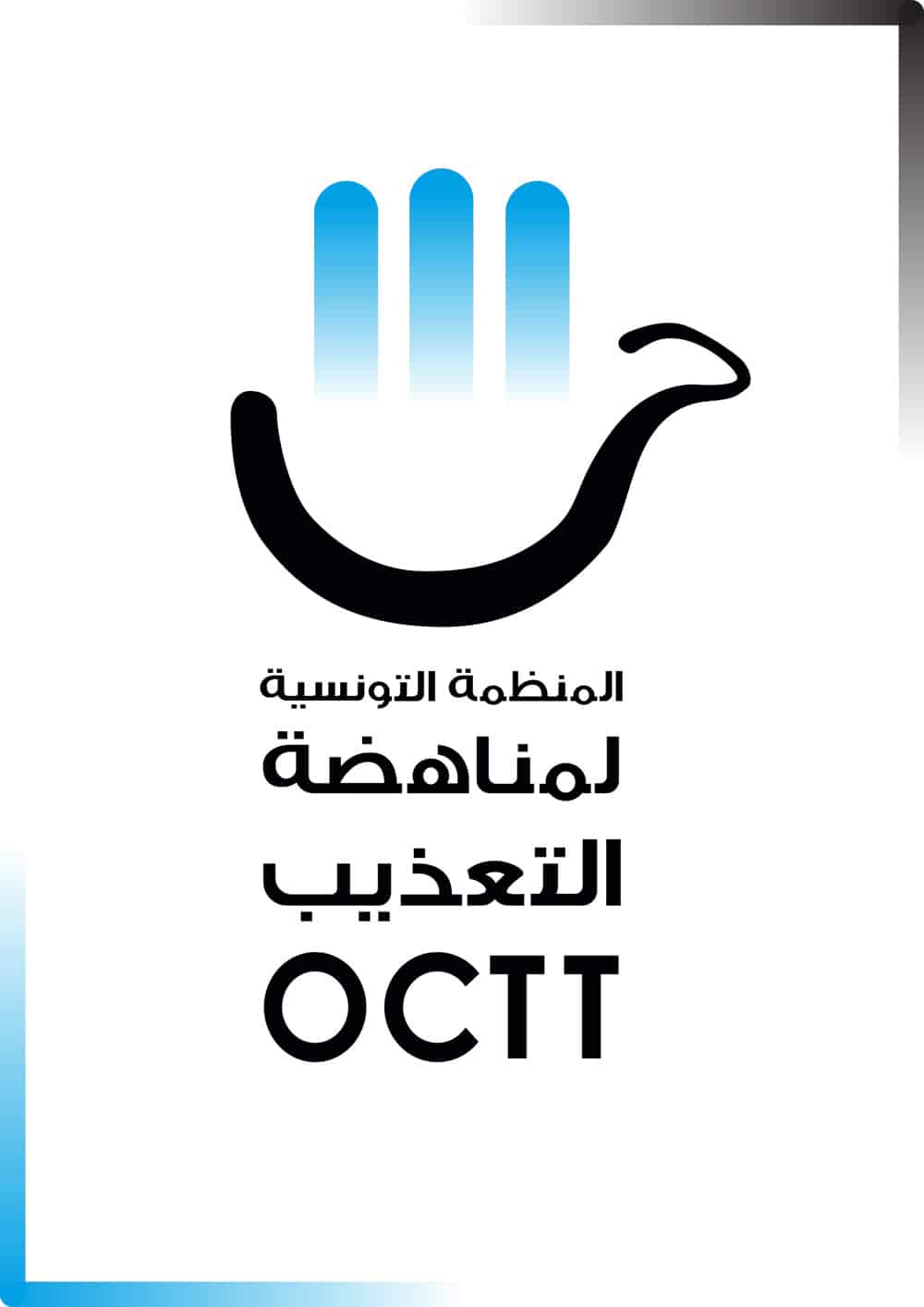
Member(s)
Organisation Contre la Torture en Tunisie – OCTT
on 8 September 2023
The OCTT has been campaigning since its creation in 2003 against torture in all its forms and in particular the death penalty and against impunity. The OCTT develops strategies and programs to promote human rights and eradicate torture and ill-treatment and against any violation of physical and moral integrity and primarily the right to life. […]
2023
Tunisia
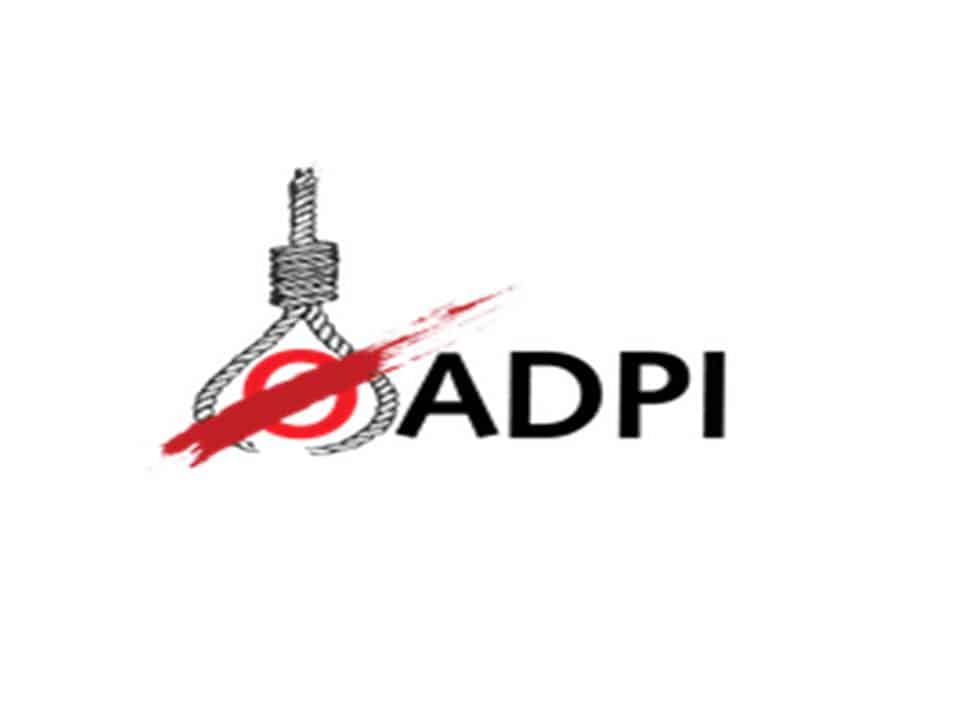
Member(s)
Abolition Death Penalty of Iraq Organization
on 30 June 2023
According to the Abolition Death Penalty of Iraq Organization, capital punishment is the state’s terminology for murder. Individuals murder each other, but states sentence individuals to ‘capital punishment.’ The demand to end capital punishment and prohibit murder stems from opposition to intentional, deliberate and planned murder of one by the other. That a state or […]
2023
Iraq
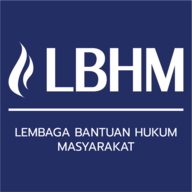
Member(s)
LBH Masyarakat (Community Legal Aid Institute)
on 5 May 2021
LBH Masyarakat (Community Legal Aid Institute) is a collective of individuals who believe that every human has potential to actively participate in legal aid, to uphold justice, and to contribute to the protection of human rights. LBH Masyarakat believes in equality, non-discrimination, and acknowledgement of inherent human dignity. LBH Masyarakat defends the right of every […]
2021
Indonesia
Document(s)
Poster Singhala 2022 – 20 වන ජගත් මරණ දඬුවමට එෙරහි දිනය
By the World Coalition Against the Death Penalty, on 8 July 2022
2022
World Coalition
More details Download [ pdf - 19959 Ko ]
- Document type World Coalition
Document(s)
The Phantom
By Patrick Forbes, on 10 August 2021
2021
Multimedia content
Innocence
Public Opinion
United States
More details See the document
THE PHANTOM tells the story of one of the darkest episodes in the long history of American justice. A story of how the State of Texas knowingly sent an innocent man to his death and left a serial killer at large. A case in which – for the first time – it can be conclusively proven that the US courts executed a blameless man.
This film uncovers the shocking truth behind a tale of murder, corruption and lies that unfolded in the dusty, desperate streets of a Texas oil town nearly thirty years ago.
- Document type Multimedia content
- Countries list United States
- Themes list Innocence / Public Opinion
Document(s)
Poster Lingala 2022 – Mokolo ya kobundela etumbu ya liwa na mokili mobimba
By the World Coalition Against the Death Penalty, on 7 July 2022
2022
World Coalition
More details Download [ pdf - 19960 Ko ]
- Document type World Coalition
Document(s)
Poster Italian – 20 GIORNATA MONDIALE CONTRO LA PENA DI MORTE
By the World Coalition Against the Death Penalty, on 7 July 2022
World Coalition
More details Download [ pdf - 19959 Ko ]
- Document type World Coalition
Document(s)
Poster 2022 Houssa – 20TH RANAR YAKI DA HUKUMCIN KISA TA DUNIYA
By the World Coalition Against the Death Penalty, on 7 July 2022
More details Download [ pdf - 19959 Ko ]
- Document type Array
Document(s)
Poster 2022 German – 20. Welttag gegen die Todesstrafe
By the World Coalition Against the Death Penalty, on 7 July 2022
More details Download [ pdf - 19959 Ko ]
Welttag gegen die Todesstrafe Poster
- Document type Array
Document(s)
World Day Poster 2022
By the World Coalition Against the Death Penalty, on 9 June 2022
2022
Campaigning
World Coalition
aresfafrruzh-hantMore details Download [ pdf - 4097 Ko ]
20th World Day on “Torture and the death penalty”.
- Document type Campaigning / World Coalition
- Available languages 2022 ملصق اليوم العال مPoster Spanish – 2022 Día Mundial contra la Pena de MuertePoster Farsi 2022 - بیستمین روز جهانی علیهمجازات مرگAffiche Journée mondiale 2022Poster Russian 2022 - 20Й ВСЕМИРНЫЙ ДЕНЬ ПРОТИВ СМЕРТНОЙ КАЗНИPoster Chinese 2022- 第20届世界反死刑日
Document(s)
Fourteen Days in May
By Paul Hamann, on 30 November 2018
2018
Arguments against the death penalty
Multimedia content
Death Row Conditions
More details See the document
Fourteen Days in May is a documentary directed by Paul Hamann. The program recounts the final days before the execution of Edward Earl Johnson, an American prisoner convicted of rape and murder.
The documentary crew, given access to the prison warden, guards and chaplain and to Johnson and his family, filmed the last days of Johnson’s life in detail. The documentary argues against the death penalty and maintains that capital punishment is disproportionately applied to African-Americans convicted of crimes against whites. The programme features attorney Clive Stafford Smith, an advocate against capital punishment.
- Document type Arguments against the death penalty / Multimedia content
- Themes list Death Row Conditions
Document(s)
No death penalty: Essay on the human dignity of the guilty
By Alfredo De Francesco , on 11 January 2022
2022
Book
More details See the document
Is the death penalty “natural” or sometimes legally due?
If not, is the death penalty always a political instrument?
If so, how and why can it be said that the death penalty is unjust, also considering religious values?
What about in case of war time or of very dangerous criminals?
In which way can there be an irrefutable argument for banning the death penalty worldwide and forever?
These and other issues concerning the death penalty are addressed by the Author of this book.
A book, where the most common theories for and against the death penalty are considered in the light of law history and philosophical views, and where Cesare Beccaria’s approach is revised, taking into account the development of the contemporary criminal law and of the legal positivism.
This is an essay, where the protection of humanity is not considered simply as a hope or as a naive dream, but rather as a juridical concept, absolutely necessary to understand one of most tragic questions of all time: “is it just to kill those who killed?”
- Document type Book
Document(s)
Poster Swahili 2022 – MIAKA 20 YA MAADHIMISHO YA KUPINGA ADHABU YA KIFO DUNIANI
By the World Coalition Against the Death Penalty, on 8 July 2022
2022
World Coalition
More details Download [ pdf - 19960 Ko ]
- Document type World Coalition
Document(s)
Poster 2022 Turkish – 20.CI ÖLÜM CEZASINA KARŞI DÜNYA GÜNÜ
By the World Coalition Against the Death Penalty, on 5 August 2022
2022
World Coalition
More details Download [ pdf - 5076 Ko ]
World Day 2022 Poster in Turkish – ÖLÜM CEZASI: İŞKENCEYLE DÖŞELI BIR YOLDUR
- Document type World Coalition
Document(s)
The cultural lives of capital punishment: comparative perspectives
By Sangmin Bae / David T. Johnson / Virgil K.Y. Ho / Evi Girling / Agata Fijalkowski / Julia Eckert / Christian Boulanger / Austin Sarat / Stanford University Press / Botagoz Kassymbekova / Shai Lavi / Jürgen Martschukat, on 1 January 2005
2005
Book
China
More details See the document
They undertake this “cultural voyage” comparatively—examining the dynamics of the death penalty in Mexico, the United States, Poland, Kyrgyzstan, India, Israel, Palestine, Japan, China, Singapore, and South Korea—arguing that we need to look beyond the United States to see how capital punishment “lives” or “dies” in the rest of the world, how images of state killing are produced and consumed elsewhere, and how they are reflected, back and forth, in the emerging international judicial and political discourse on the penalty of death and its abolition.
- Document type Book
- Countries list China
- Themes list Networks,
Document(s)
Poster Urdu 2022 – سزائے موت کے خلاف بیسواں عالمی دن
By the World Coalition Against the Death Penalty, on 8 July 2022
2022
More details Download [ pdf - 19959 Ko ]
- Document type Array
Document(s)
No one is spared – The widespread use of the death penalty in Iran
By League for the Defence of Human Rights in Iran, on 5 November 2020
2020
Drug Offenses
Fair Trial
Iran (Islamic Republic of)
Juveniles
Women
More details See the document
- Document type Array
- Countries list Iran (Islamic Republic of)
- Themes list Drug Offenses / Fair Trial / Juveniles / Women
Document(s)
Voting record – Draft resolution A/C.3/75/L.41 as amended, Moratorium on the use of the death penalty
By United Nations General Assembly, on 18 November 2020
2020
International law - United Nations
zh-hantMore details See the document
Document(s)
Poster Tamil 2022 – மரண தண்டைனக்ெகதிரான இருபதாவது உலக நாள்
By the World Coalition Against the Death Penalty, on 8 July 2022
2022
World Coalition
More details Download [ pdf - 5049 Ko ]
- Document type World Coalition
Document(s)
I Spent A Day With Death Row Survivors
By Anthony Padilla, on 1 January 2020
2020
Multimedia content
United States
More details See the document
Anthony Padilla interviewed 4 death row survivors to shed light on sentencing innocent people to death for a crime they did not commit. Derrick Jamison, Nick Yarris, Peter Pringle and Sunny Jacobs spent between 15 and 23 years awaiting executions, before being finally released from death row.
- Document type Multimedia content
- Countries list United States
Document(s)
Let the Lord Sort Them. The Rise and Fall of the Death Penalty
By Maurice Chammah, on 27 January 2021
2021
Book
Public Opinion
United States
More details See the document
Maurice Chammah (The Marshall Project) explores the rise and fall of capital punishment in Texas where it appears to durably decline in spite of the state’s long use of the death penalty.
- Document type Book
- Countries list United States
- Themes list Public Opinion
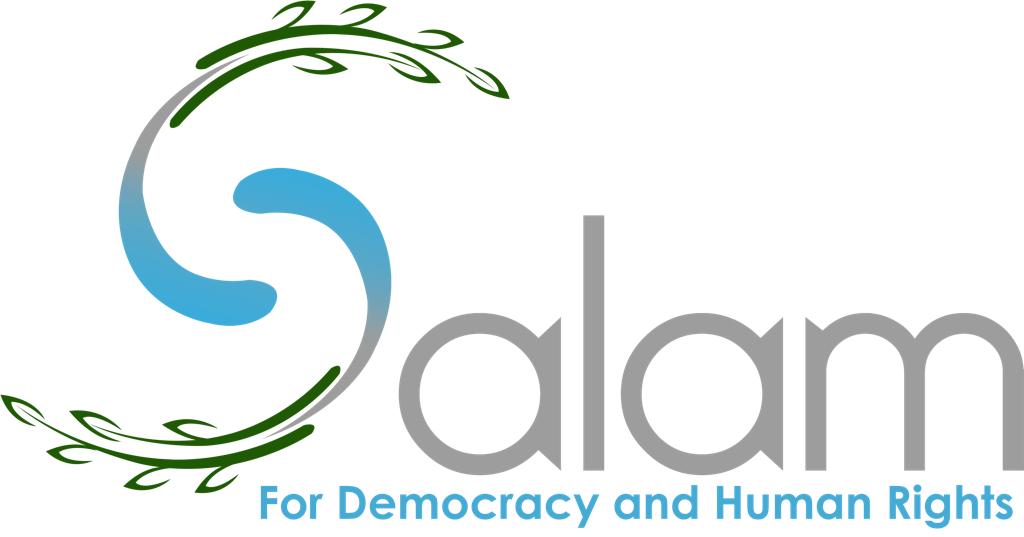
Member(s)
SALAM for Democracy and Human Rights (SALAM DHR)
on 30 April 2021
SALAM for Democracy and Human Rights (SALAM DHR) is an NGO that endeavors to preserve universal principles of dignity and respect by shielding democracy and human rights. SALAM DHR conducts monitoring and analysis, produces reports, develops recommendations on policy and legislation, organizes advocacy campaigns, conducts trainings, and builds effective coalitions. SALAM DHR is actively involved […]
2021
Bahrain
Document(s)
Poster World Day 2004
By World Coalition against the death penalty , on 10 October 2004
2004
Campaigning
Trend Towards Abolition
esfrMore details Download [ pdf - 17 Ko ]
Poster world day against the death penalty 2004
- Document type Campaigning
- Themes list Trend Towards Abolition
- Available languages Poster Spanish 2004Affiche journée mondiale 2004
Document(s)
Poster World Day 2007
By World coalition against the death penalty , on 10 October 2007
2007
Campaigning
Trend Towards Abolition
arfrMore details Download [ pdf - 228 Ko ]
Take action
against the death penalty:
Join the hundreds
of initiatives worldwide
Sign the petition
calling for a universal
moratorium on executions
- Document type Campaigning
- Themes list Trend Towards Abolition
- Available languages Poster Arabic 2007Affiche journée mondiale 2007
Document(s)
Poster World Day 2009
By World Coalition against the death penalty , on 10 October 2009
2009
Campaigning
Trend Towards Abolition
frMore details Download [ pdf - 11475 Ko ]
Poster world day against the death penalty 2009
- Document type Campaigning
- Themes list Trend Towards Abolition
- Available languages Affiche journée mondiale 2009
Document(s)
Poster World day against the death penalty 2024 – 2025 – Portuguese
By World coalition against the death penalty, on 8 July 2024
2024
Campaigning
World Coalition
More details Download [ pdf - 1590 Ko ]
- Document type Campaigning / World Coalition
Document(s)
Determinants of the Death Penalty: A Comparative Study of the World
By Carsten Anckar / Routledge, on 1 January 2004
2004
Book
More details See the document
Determinants of the Death Penalty seeks to explain the phenomenon of capital punishment – without recourse to value judgements – by identifying those characteristics common to countries that use the death penalty and those that mark countries which do not. This global study uses statistical analysis to relate the popularity of the death penalty to physical, cultural, social, economical, institutional, actor oriented and historical factors. Separate studies are conducted for democracies and non-democracies and within four regional contexts. The book also contains an in-depth investigation into determinants of the death penalty in the USA.
- Document type Book
- Themes list Networks,
Document(s)
Against the death penalty: international initiatives and implications
By Richard C. Dieter / Sangmin Bae / Seema Kandelia / William A. Schabas / Lilian Chenwi / Peter Hodgkinson / Roger Hood / Lina Gyllensten / Nicola Machean / Jane Marriott / Julian Killingley / Quincy Whitaker / Jon Yorke (ed) / Ashgate Publishing Limited / Rachael Stokes, on 1 January 2008
2008
Book
China
More details See the document
This edited volume brings together leading scholars on the death penalty within international, regional and municipal law. It considers the intrinsic elements of both the promotion and demise of the punishment around the world, and provides analysis which contributes to the evolving abolitionist discourse.The contributors consider the current developments within the United Nations, the Council of Europe, the African Commission and the Commonwealth Caribbean, and engage with the emergence of regional norms promoting collective restriction and renunciation of the punishment. They investigate perspectives and questions for retentionist countries, focusing on the United States, China, Korea and Taiwan, and reveal the iniquities of contemporary capital judicial systems. Emphasis is placed on the issues of transparency of municipal jurisdictions, the jurisprudence on the ‘death row phenomenon’ and the changing nature of public opinion. The volume surveys and critiques the arguments used to scrutinize the death penalty to then offer a detailed analysis of possible replacement sanctions.
- Document type Book
- Countries list China
- Themes list International law,

Member(s)
Coalition nationale tunisienne contre la peine de mort
on 30 April 2020
The National Tunisian Coalition Against the Death Penalty (CTCPM) was founded in 2007 and legally recognized in 2012 after the fall of dictator Ben Ali. The CTCPM continues many generations of activist’ fight for the abolition of the death penalty since the mid-1970s. The CTCPM’s objectives are written down in its charter: – Achieving the abolition […]
2020
Tunisia
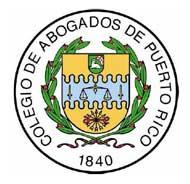
Member(s)
Colegio de Abogados y Abogadas de Puerto Rico
on 30 April 2020
The Puerto Rico Bar Association (Colegio de Abogados y Abogadas de Puerto Rico) represents all the attorneys in Puerto Rico, and has historically taken a very active role in the public debate. Since 2006 the Bar Association has been part of the World Coalition under the umbrella of the Puertorican Coalition Against the Death Penalty, […]
Puerto Rico
Member(s)
Association for the Right to Live
on 30 April 2020
The Association for the Right to Life (ARL) was founded in Iran by Emadeddin Baghi, a writer and long-time human rights activist. Baghi was sentenced to three years in prison after writing an article against the death penalty in 2000. After his release, he established two human rights associations: – the Society for the defense […]
Iran (Islamic Republic of)

Member(s)
Ordre des avocats du Barreau de Liège
on 30 April 2020
The Liège Bar Association (Ordre des avocats du Barreau de Liège) is the representative and disciplinary body for the lawyers registered with the Liège Bar. It promotes their profession and defends the rights of individuals. Some 880 lawyers are registered with the Liège Bar.
Belgium
Member(s)
Norden Directions
on 30 April 2020
Norden Directions is an Australian non-government organisation founded in 2009. It focuses on policy in relation to social justice and human rights issues both within Australia and overseas. It has contributed to the abolition of the death penalty internationally in public debate over the past decade. Its Director, Professor Peter Norden AO, is an experienced […]
Australia
Member(s)
Ordre des avocats de Genève
on 30 April 2020
The Geneva Bar association (Ordre des Avocats de Genève) represents lawyers before the authorities, other regional bar associations, foreign bar associations and the Swiss Lawyers’ Federation. At the same time, it looks after the strict application of ethical and deontological standards. The Geneva Bar association was a partner of the 4th World Congress Against the […]
Switzerland

Member(s)
Equal Justice USA
on 30 April 2020
Equal Justice USA, founded in 1990, is a national organization that works to transform the justice system by promoting responses to violence that break cycles of trauma. We work at the intersection of criminal justice, public health, and racial justice to elevate healing over retribution, meet the needs of survivors, advance racial equity, and build […]
United States

Member(s)
Human Rights Commission of Pakistan
on 30 April 2020
Founded in 1986 and registered in 1987, the Human Rights Commission of Pakistan (HRCP) is an independent, democratic, nonpartisan organization committed to supporting human rights in the country. Over the last three decades, HRCP has worked for women’s empowerment and gender equality, the rights of religious minorities, rule of law and access to justice, democratic […]
Pakistan

Member(s)
Themis Fund / The 8th Amendment Project
on 30 April 2020
Mandate and goals : Abolition of the death penalty in the United States. Kind of actions : Strategic coordination of advocates, litigators, funders and activists throughout the U.S. We work in partnership with all the major funders of the abolition movement in the U.S., and with almost all of the activists, lawyers, and political advocates […]
United States
Member(s)
Coordination Eveil et cause pour l’Unité nationale et la lutte contre l’esclavage
on 30 April 2020
The Coordination Eveil et cause pour l’Unité nationale et la lutte contre l’eclavage is a non-governmental organization focused on the fight against slavery and its aftereffects. Created on 22 February 2012, it promotes a culture of Human rights and strenghten the national unity and and the bonds of love and brotherhood between every part of […]
Mauritania

Member(s)
Communità di Sant’Egidio
on 30 April 2020
Sant’Egidio is a Christian community born in 1968, right after the second Vatican Council. An initiative of Andrea Riccardi, it was born in a secondary school in the centre of Rome. With the years, it has become a network of communities in more than 70 countries of the world. The Community pays attention to the […]
Italy
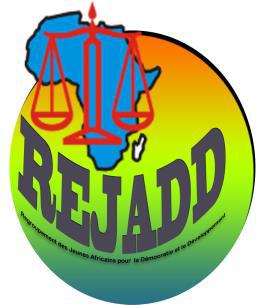
Member(s)
REJADD-Togo
on 30 April 2020
The Young African Group for Democracy and Development, Togo-chapter (REJADD-Togo) is an organization promoting and protecting human rights and humanitarian actions. It was officially created on August 11, 2006 and currently has an official chapter in Mali. The REJADD-Togo aims to contribute to the sustainable, integral and harmonious development of Africa in general and Togo […]
Togo
Member(s)
Città di Venezia
on 30 April 2020
The city of Venice is globally renowned for its unique cultural heritage and location. Venice is strongly mobilised to improve the well-being of its inhabitants, by promoting a peaceful coexistence among its people and stimulating inter-religious and intercultural dialogue. In this way the city is following the example of tolerance set by the ancient “Serene […]
Italy

Member(s)
Lutte pour la Justice
on 30 April 2020
Le comité Lutte pour la Justice (LPJ) was created in 1996 by Odell Barnes, a death row prisoner in Texas who wanted to have his innocence recognised and the right to a new trial. His three French correspondents took on his cause the very same year. This informal committee aimed to provide moral support and, […]
France

Member(s)
Mouvement contre le Racisme et pour l’Amitié entre les Peuples (MRAP)
on 30 April 2020
The Movement Against Racism and for Friendship between Nations (MRAP) has its origins in the French Resistance: it emerged from the National Movement against Racism, founded secretly in 1941 to save Jewish children from deportation and to thwart the racist ideology of the Vichy regime. Since then the MRAP has taken action against other forms […]
France

Member(s)
Réseau Marocain Euromed des ONG
on 30 April 2020
Morocco

Member(s)
Ordine Provinciale dei Medici-Chirurgi e degli Odontoiatri di Firenze
on 30 April 2020
The Provincial Order of Doctors, Surgeons and Dentists in Florence is a member of the World Coalition.
Italy

Member(s)
Organisation Marocaine des Droits Humains
on 30 April 2020
The Moroccan Organisation for Human Rights (OMDH) aims to diffuse and deepen the awareness of individual and collective human rights in socio-economic, cultural, civil and political matters. Working with other Moroccan, Arabic, African and international organisations, it organises conferences, debates, research, investigations and exhibitions as well as a video competition on human rights. The OMDH […]
Morocco
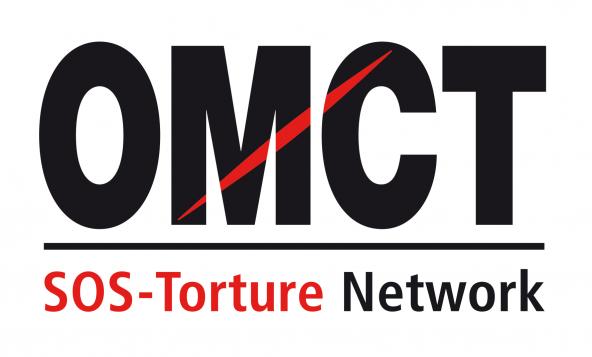
Member(s)
Organisation Mondiale Contre la Torture (OMCT)
on 30 April 2020
The OMCT is an independent, non-partisan, non-sectarian, Swiss international non-governmental organisation, founded in Geneva in 1985. It is today the leading global civil society network against torture including more than 200 local member organisations operating in over 90 countries around the world. Driven by the needs of its SOS-Torture Network members, the OMCT engages in […]
Switzerland

Member(s)
Ville de Dijon
on 30 April 2020
The City of Dijon, France, is a member of the World Coalition.
France

Member(s)
Observatoire Marocain des Prisons
on 30 April 2020
L’Observatoire marocain des prisons (OMP) is an independent non-governmental organisation created by human rights activists to protect and promote the rights of prisoners. It monitors prison conditions in Morocco, provides legal assistance to prisoners and runs a research, information and advocacy centre for more humane prisons. The OMP considers that the dignity and physical and […]
Morocco
Member(s)
Rescue Alternatives Liberia (RAL)
on 30 April 2020
Being the forerunner of prisoners’ rights and anti-torture and death penalty in Liberia, we have the vision that the Liberian society will adheres to: 1. The tenets of human rights, rule of law and democracy for all people; 2. Active citizens’ participation in national and local governance; and 3. Rehabilitation of survivals of torture, violence […]
Liberia
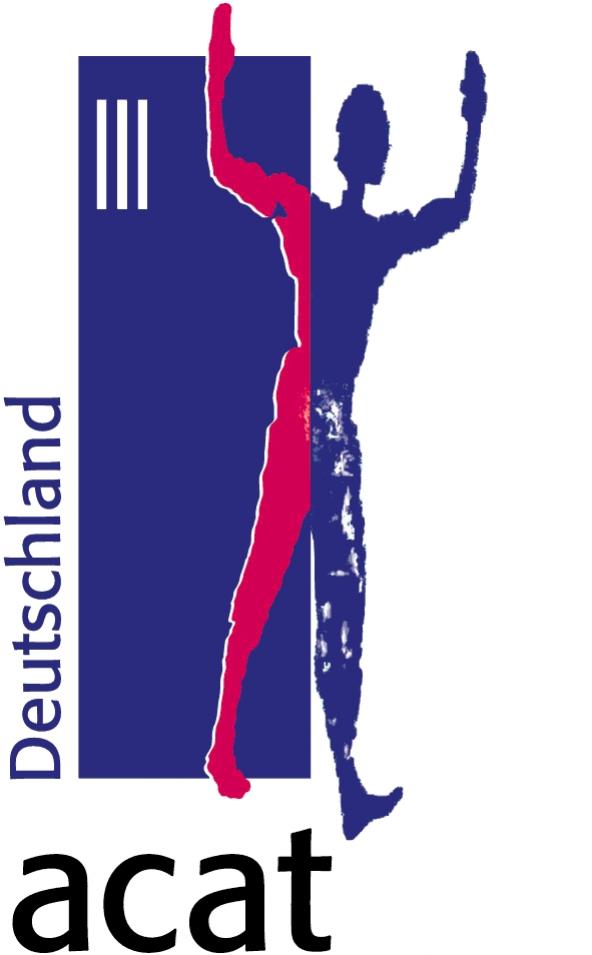
Member(s)
ACAT Deutschland
on 30 April 2020
The objective of Aktion der Christen für die Abschaffung der Folter (ACAT Deutschland) is to fight against torture and the death penalty. They issue: urgent Appeals, petitions and caimpaign for raising awarness on human rights issues (schools, forums…).
Germany

Member(s)
Think Centre
on 30 April 2020
Think Centre aims to critically examine issues related to political development, democracy, rule of law, human rights and civil society. They conduct research, campaigns on public awareness. They issue urgent appeals and work by networking and reporting to the UN Human Rights bodies.
Singapore

Member(s)
Japan Innocence and Death Penalty Research Center
on 30 April 2020
The JIADEP mission is to assist those who have been wrongfully incarcerated and sentenced to death, and to educate the public on the tragedies of criminal justice in Japan by lecturing, writing, and demonstrating.
Japan

Member(s)
Kurdistan Human Rights Network
on 30 April 2020
Iran (Islamic Republic of)

Member(s)
Confédération générale du travail (CGT)
on 30 April 2020
The General Confederation of Labour (Confédération générale du travail – CGT) is based in France and is strong of 690,000 members. It is affiliated to the European Trade Union Confederation and the International Trade Union Confederation and is one of the confederated unions representing France. Through its analysis, proposals and action, it aims at developping […]
France

Member(s)
Lebanese Association for Civil Rights (LACR)
on 30 April 2020
The Lebanese Association for Civil Rights – LACR was founded in 2003 as a continuation of an action experienced since 1983 by two pioneers of the culture of non-violence in Lebanon and the Arab world: Walid Slaybi and Ogarit Younan. They are both writers, researchers, sociologists, pioneers of active training in Lebanon and grassroots activists. […]
Lebanon
Member(s)
Catholic Commission for Social Justice (CCSJ)
on 30 April 2020
Mandate and goals : To be a fearless united voice challenging injustice, awakening social consciousness and fostering integral development. We strive for this through: Social Justice Education and Advocacy; Promoting people-centred development, and; Working for the transformation of inequitable structures and systems Kind of actions : Promote and create opportunities, structures and programmes to achieve […]
Trinidad and Tobago

Member(s)
New Hampshire Coalition to Abolish the Death Penalty (NHCADP)
on 30 April 2020
New Hampshire Coalition to Abolish the Death Penalty (NHCADP) ‘s mandate and goals are to abolish the Death Penalty in the State of New Hamphire and the United States. To do so, they organise the following actions: direct lobbying of legislators, letter writing campaigns to legislators and media, vigils and other public demonstrations, public information […]
United States
Member(s)
Observatoire burundais des prisons
on 30 April 2020
Burundi

Member(s)
Ordre des avocats du Barreau de Versailles
on 30 April 2020
France

Member(s)
The Sunny Center Foundation
on 30 April 2020
Ireland
Document(s)
Debating the death penalty: should America have capital punishment? : the experts on both sides make their case
By Hugo Adam Bedau / Stephen B. Bright / Joshua K. Marquis / Bryan Stevenson / Louis P. Pojman / Alex Kozinski / Paul G. Cassell / Oxford University Press / George Ryan, on 1 January 2004
2004
Book
United States
More details See the document
This book contains contributions from judges, attorneys, and academicians on both sides of the death penalty question. The grounds advanced for justification of capital punishment–including deterrence, retribution, and closure for victims’ families–are considered. Whether life imprisonment is adequate to address these concerns is also debated. Other issues include whether racial minorities or indigent defendants are disproportionately executed, whether the penalty is otherwise arbitrarily applied, and what risks exist regarding the execution of an innocent person.
- Document type Book
- Countries list United States
- Themes list Networks,
Document(s)
Bryan Stevenson: We need to talk about an injustice
By TED / Bryan Stevenson, on 1 January 2012
2012
Multimedia content
United States
More details See the document
In an engaging and personal talk — with cameo appearances from his grandmother and Rosa Parks — human rights lawyer Bryan Stevenson shares some hard truths about America’s justice system, starting with a massive imbalance along racial lines: a third of the country’s black male population has been incarcerated at some point in their lives. These issues, which are wrapped up in America’s unexamined history, are rarely talked about with this level of candor, insight and persuasiveness.Speaker starts talking about the death penalty at the 8 minute mark.
- Document type Multimedia content
- Countries list United States
- Themes list Discrimination,
Document(s)
Oral Statement: 56th Ordinary Session of the African Commission on Human and People’s Rights
By FIACAT, on 8 September 2020
2020
Article
More details See the document
During the 56th Ordinary Session of the African Commission on Human and Peoples’ Rights in Banjul, Gambia, 21 April – 7 May 2015, the FIACAT made an oral statement as they would like to would like to congratulate on the actions taken by the Committee for the prevention of torture in Africa since the 55th Ordinary Session of the ACHPR. Nevertheless, FIACAT remains greatly concerned by the number of cases of torture documented by its members (ACATs) and the impunity which torturers enjoy.
- Document type Article
- Themes list Trend Towards Abolition, Country/Regional profiles,
Document(s)
The last executioner: memoirs of Thailand’s last prison executioner
By Chavoret Jaruboon / Nicola Pierce / kindle edition, on 8 September 2020
Book
Thailand
More details See the document
Chavoret Jaruboon was personally responsible for executing 55 prison inmates in Thailand’s infamous prisons. As a boy, he wanted to be a teacher like his father, but his life changed when he chose one of the hardest jobs in the world. Honest and often disturbing – but told with surprising humour and emotion – ‘The Last Executioner’ is the remarkable story of a man who chose death as his vocation.
- Document type Book
- Countries list Thailand
- Themes list Firing Squad,

